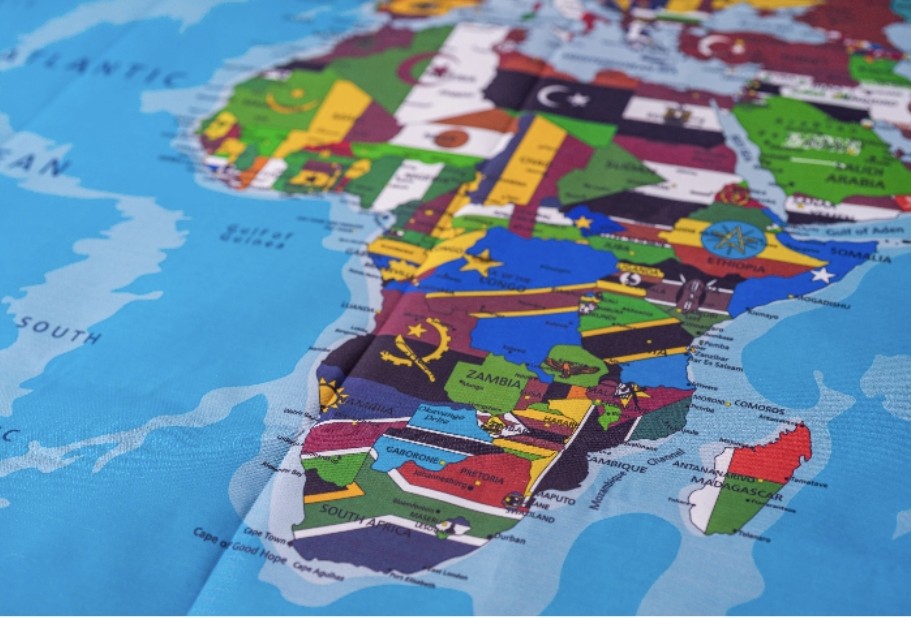
The last decade has witnessed remarkable growth in Africa's gambling industry, with the number of players surging across the continent. As the market is projected to reach $11.42 billion by 2032, investors are presented with a lucrative opportunity to capitalize on this rapidly growing sector.
It’s no wonder that betting platforms are taking note of these new opportunities to expand their businesses, with Booming Games recently inking a deal with ChopBet to strengthen its presence in the country.
Countries like Nigeria, South Africa, and Kenya are leading the way, with mobile casinos and sports betting becoming immensely popular. This growth is fuelled by a youthful population and rising disposable incomes. Players are drawn to cutting-edge platforms offering varied betting options and incentives.
Bettors can enjoy great promotions like free spins at mobile casinos, many of which are sourced by FreeSpinsTracker, enhancing their gaming experience.
Analysts project the market's value to reach billions in the coming years, reflecting its enormous potential. As regulatory frameworks evolve, the industry is set to become a significant contributor to Africa's digital economy and entertainment sphere.
Current landscape
This year alone, the African gambling market is expected to exceed $40 billion, attracting major industry players like William Hill, Ladbrokes, and Bet365, all eager to tap into this lucrative market. Although Africa's gambling industry is still in its early stages compared to Europe, the continent offers a fantastic opportunity for investors looking to capitalize on expanding internet access and a growing middle class.
Additionally, many African countries are introducing more favorable regulations, which could further boost investment in the sector, with updates to gambling laws currently under consideration.
However, the market faces several challenges. Limited internet connectivity in some areas could slow growth, while improvements in payment systems and financial inclusion would help streamline transactions.
The regulatory framework is also
complex, with each of the nine provinces having its own set of rules. While a
sports betting license from any province generally allows nationwide access,
traditional online casinos are banned across all provinces due to local
regulations.
Major players
South Africa is one of the largestgambling markets in Africa, with a record £2.58 billion in gaming
revenue for the 2023-24 financial year. While land-based casinos saw a modest
increase of 0.1% in revenue, the sports betting sector experienced substantial
growth, rising by over 51% and accounting for 60% of the region’s total gaming
revenue.
Following
closely behind is Nigeria, which has seen rapid growth in its online gambling
sector. The country's online sports betting industry is estimated to be worth
over $2 billion, with around 60 million Nigerians participating in sports
betting. As a result, Nigeria has become one of the most dynamic markets for
online gambling in Africa, with platforms like Bet9ja gaining widespread
popularity.
Other notable African countries with thriving gambling markets include Kenya, Ghana, and Uganda. In Kenya, mobile sports betting is particularly popular, contributing to a gambling industry worth approximately Sh 200 billion ($1.8 billion) annually. Ghana and Uganda have also experienced a rise in betting platforms and participation, signalling a growing interest in gambling across East and West Africa.
Prioritizing Responsible Gambling Practices
As the African gambling industry continues to grow, prioritizing responsible gambling practices is crucial to ensuring a safe and sustainable environment for players.
To protect players and foster long-term growth, gambling operators must implement measures such as player verification tools, which confirm the identity and age of users to ensure they meet legal age requirements and are truthful about their identity.
South Africa has already introduced a new set of regulations requiring casinos to implement spending limits for players to help prevent excessive gambling.
These
limits apply to daily, weekly, and monthly deposits, and although players can
adjust them, they cannot exceed certain thresholds. This measure aims to
prevent financial harm and ensure players do not spend beyond their means.
These
regulations apply to both land-based and online casinos, demonstrating the
country's commitment to safeguarding players. These changes serve as an
important example for other African nations facing similar challenges, helping
to balance the economic benefits of gambling with the need for public safety.
Responsible gambling practices are not just about doing the right thing—they are essential for the market's sustainability. Without these measures, problem gambling could increase, leading to serious consequences for individuals, their families, and society as a whole. If left unchecked, it can contribute to higher crime rates, gambling-related debt, and other social issues.

